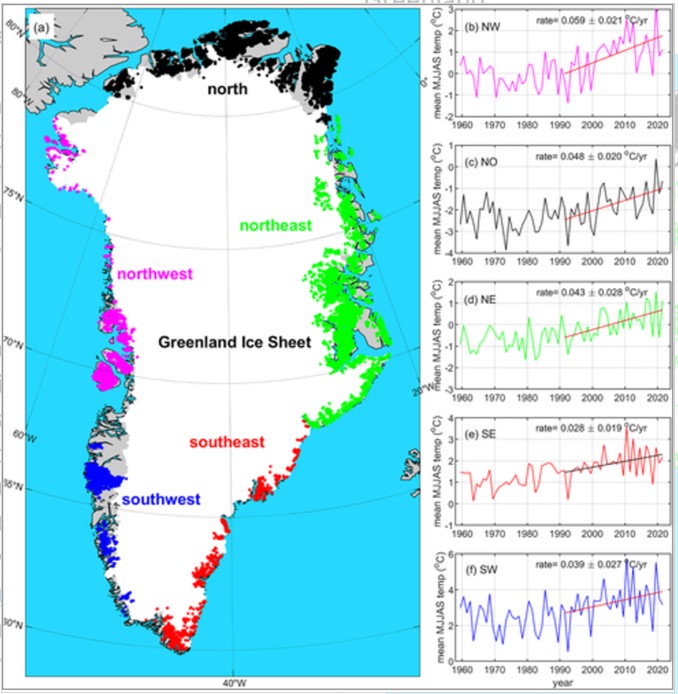Melting Glaciers in times of Global Climate Change

Melting Glaciers in times of Global Climate Change
Without doubt, climate change is a grand and global challenge, if not the challenge that humanity has to face today and in the future. The Intergovernmental Panel on Climate Change (IPCC) reached a clear consensus on the severity of the Climate Crisis. Today, we are experiencing a climate with record mean temperatures that have been unprecedented for the past 100.000 years.
There is something even more alarming hidden in the details. A special feedback mechanism makes arctic temperatures increase a few times faster compared to the global average. This is reason enough for glaciologists to have a closer look at the data.
Our close colleague and AI4EO guest-professor Jonathan Bamber is professor for Earth Observation and glaciology at the University of Bristol as well as director of the Bristol Glaciology Center. In a recent paper, published in the journal Geophysical Research Letters and lead by Shfaqat A. Khan, the authors including Prof. Jonathan Bamber focused on the so-called peripheral glaciers of Greenland.
These rather small glaciers only make up 4% of the total ice-cover of Greenland. And yet the increased local temperatures indicated in the figure, made their ice loss increase by a factor of four over about the last decade. This conclusion is based on data gathered by the Ice, Cloud, and land Elevation Satellite (ICESat) and ICESat-2. The authors state that these peripheral glaciers contribute to roughly 11% of all of Greenland’s ice loss today. This means an immediate and significant contribution to global sea level rise.
Even in our close vicinity, the Alps, glaciers are losing mass and become increasingly unstable. A tragic example is the very recent collapse of part of a glacier in the Dolomites. Prof. Jonathan Bamber was quoted by The Guardian and BBC News: “The Dolomites in Italy, where this tragic accident occurred, experienced a drought throughout the winter with very little snowfall. Combined with the unusually high temperatures across the region over the summer, glaciers are melting fast. The section that broke off was part of a hanging glacier with seracs or ice cliffs that become particularly unstable during in warm conditions such as those in the Dolomites right now.” On radio FM4, Prof. Bamber explains in more detail, how a blanket of snow could have acted as insulator to at least decelerate the melting process of the glacier underneath – a melting process that is inevitable at the current rates of greenhouse-gas emissions.


